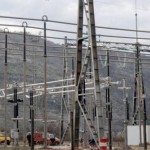 (Podgorica, 18 January 2012) – The Electric Power Company of Montenegro (EPCG) shouldn’t count on the short memory of citizens and try to convince them that they’re not paying for extraordinary electricity imports (given that this is precisely the reason the company invoked to justify January’s price hike).
(Podgorica, 18 January 2012) – The Electric Power Company of Montenegro (EPCG) shouldn’t count on the short memory of citizens and try to convince them that they’re not paying for extraordinary electricity imports (given that this is precisely the reason the company invoked to justify January’s price hike).
Only a few months ago, the EPCG asked the Regulatory Agency for Energy (RAE) to alter the regulated revenue amount due to the ‘severe energy situation’ – resulting in a 6.8% increase in our monthly electricity bills (with the possibility of further price hikes in the future).
MANS’ case calling for the annulment of the RAE’s decision sits before the Administrative Court. We hope to demonstrate during the public hearings that this increase (and several previous increases) were determined arbitrarily, to the detriment of the citizens and to the benefit of the energy companies.
When it comes to emergency electricity imports, the EPCG is constantly pointing to the ‘severe energy situation’ and local weather conditions, even though the current situation stems from the management’s own erroneous calculations. For instance, at the beginning of last year, in order to earn a little on the side, the EPCG sold a portion of the electricity it had imported, leaving it in a situation later on where it no longer had sufficient reserves and it had to buy electricity once again at inflated prices.
The same situation is currently unfolding before our eyes, since the management didn’t secure sufficient quantities of long-term electricity supplies for 2012. As a result, the EPCG has been forced to purchase it on a daily or weekly basis at incredibly high prices. If it had only purchased it on time, when electricity stood at €50 per megawatt, these days it wouldn’t have to pay €150 per megawatt for electricity imports.
It would be nice if the EPCG’s claim that at least this time we won’t be subsidizing electricity traders and kickbacks were actually true, since this would demonstrate that the enterprise has finally learnt to fear the people’s justifiable dissatisfaction.
Citizens, through their bills, are already paying the price of such irresponsible behavior by the EPCG management. Montenegro’s energy consumers already pay the highest electricity bills in the region and pay substantial more for it than the electricity that is sold to these same energy lobbies when they export their surpluses.
Should we mention that for years we’ve been paying for electricity theft, and that the Constitutional Court ruled that this was contrary to the Constitution, and that to this day we continue to pay for incredibly high losses incurred by the transmission and distribution networks. Even though Italy’s A2A was brought in as a partner precisely in order to invest its capital into the modernization of the EPCG’s infrastructure, the only actual beneficiary of such inflows has been the First Bank (owned by the Djukanovic family).
However, are these infamous ‘losses’ in the network the consequence of a failure to invest in the infrastructure or simply of theft? The money invested by A2A is being held by the First Bank in order to shore up its liquidity. Whatever the causes of such ‘losses,’ citizens are no longer interested in hearing the excuses, they are simply put no longer willing to continue paying the price for such high levels of mismanagement.
Similarly, instead of explaining what share of electricity imports into Montenegro are dominated by Vuk Hamović’s EFT, we call on the EPCG to release any relevant documents it has that would show at what cost electricity was purchased and resold to EFT (as well as links with other companies tied to Vuk Hamović and Vojin Lazarević, two well-known regional electricity traders).
This information is classified by EPCG as secret, thereby refusing to grant any insight through the Law on Free Access to Information (which they should comply with, given that the company is majority state owned, i.e. belongs to the citizens).
Instead of inviting MANS to sit behind closed doors and read hundreds of pages of documentation concerning electricity trading, the EPCG should post on its website all contracts concerning the import/export of electricity. In addition to these contracts, it should also post all accompanying documentation (including the public tender calls, the tender documentation of all bidders, the notes and decisions of the commission, as well as all annexes to these agreements and bills demonstrating payment).
Only in this way will the public be in a position to discover at what price the EPCG is actually purchasing electrical energy, how much it respects tender procedures and which interests are profiting from the bills we pay.



